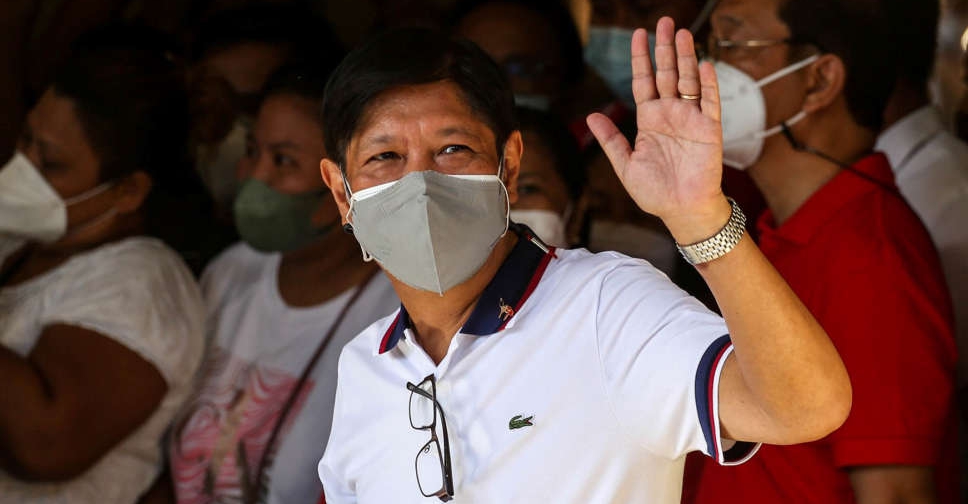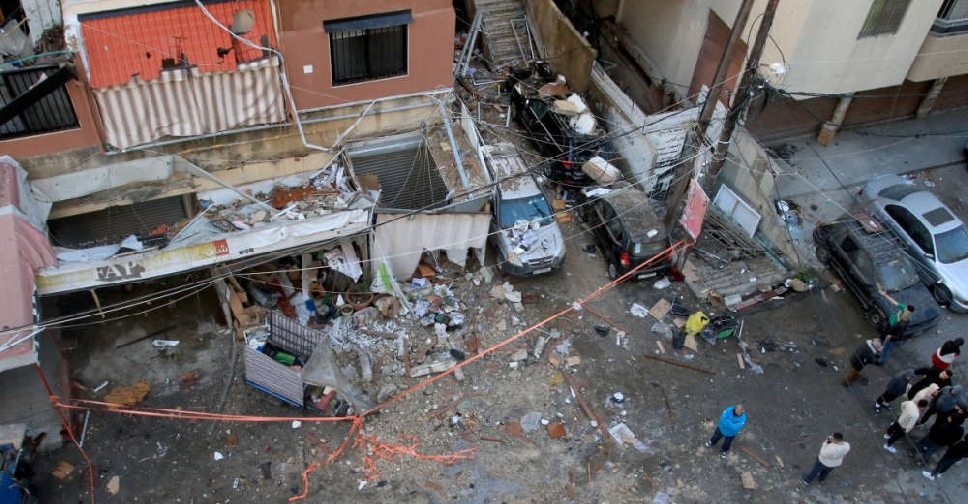
Polls opened in the Philippines on Monday in the country's most divisive presidential election in decades, with the prospect of a once-unthinkable return to rule of the Marcos family, 36 years after they were toppled in a "people power" uprising.
The election pits Vice President Leni Robredo against former senator and congressman Ferdinand Marcos Jr, the son and namesake of a dictator whose two decade rule ended in a public revolt and his family's humiliating retreat into exile.
Opinion polls put Marcos, popularly known as "Bongbong", leading his rival by over 30 percentage points, having topped every poll this year. That means Robredo will need a late surge or low turnout if she is to win the presidency.
Voters started lining up long before polls opened at 6 a.m. (2200 GMT Sunday), with polling stations due to operate for longer than usual because of COVID-19 precautions.
Polls close at 7 p.m. and an unofficial vote count could give an indication of the winner within hours.
Marcos, 64, has presented no real policy platform but his presidency is expected to provide continuity from outgoing leader Rodrigo Duterte, whose ruthless, strongman approach proved popular and helped him to consolidate power rapidly.
Robredo, 57, a former human rights lawyer and staunch liberal, has pledged to improve education and welfare, fight poverty and improve market competition if elected.
The Commission on Elections (Comelec) said on Monday it has not received reports of any major issues on the ground so far, but there were minor delays to voting in some precincts in the southern provinces of Cotabato and Marawi.
Marcos cast his ballot in his home province of Ilocos Norte, and only briefly spoke to journalists on his way out.
'VICTORY OF UNITY'
Marcos is buoyed by the support of many younger Filipinos born after the 1986 revolution, having launched a massive social media offensive in an upbeat campaign that has carried undertones of historical revisionism.
His supporters and social media influencers have dismissed narratives of plunder, cronyism and brutality under the martial law of his late father as lies peddled by opponents, presenting what his critics say is a different version of history. The Marcos camp has denied running misinformation campaigns.
Despite its fall from grace, the Marcos family returned from exile in the 1990s and has since been a powerful force in Philippine politics, retaining its influence with vast wealth and far-reaching connections.
The vote also presents an opportunity for Marcos to avenge his loss to Robredo in the 2016 vice presidential election, a narrow defeat by just 200,000 votes that he sought unsuccessfully to overturn.
Marcos has steered clear of debates and has campaigned on a message of optimism and unity, on Saturday telling hundreds of thousands of supporters that he dreamed of a "victory of unity of the entire Philippines".
Robredo has promised supporters better education, healthcare and public services if elected.
A game-changer in the election could be vice presidential running mate Sara Duterte-Carpio, the incumbent president's popular daughter, who could transfer some of her father's huge support to Marcos. The president has not endorsed any candidate.
About 65 million Filipinos are eligible to vote to decide on a successor to Duterte after his six years in power. Also up for grabs are about 18,000 posts, from seats in the senate and congress to mayors, governors and councillors.




 Trump fires National Security Agency director
Trump fires National Security Agency director
 Israel steps up Syria strikes, says Turkey aims for 'protectorate'
Israel steps up Syria strikes, says Turkey aims for 'protectorate'
 US sending Israel 20,000 assault rifles that Biden delayed
US sending Israel 20,000 assault rifles that Biden delayed
 Israel says it killed a Hamas commander in Lebanon
Israel says it killed a Hamas commander in Lebanon



